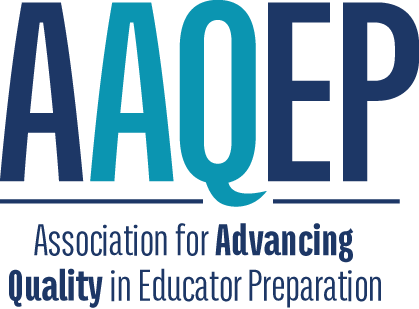B.A. in Elementary Education
- Hawai‘i State Approved Teacher Education Program (SATEP) through the Hawai‘i Teacher Standards Board (HTSB)
- Association for Advancing Quality in Educator Preparation (AAQEP) nationally accredited
- Convenient evening course offerings
- Small class size
- Field experiences courses
- Web-based courses and electronic portfolios
- Mentorship by elementary teachers in public, private and charter school settings
- 450 hours of clinical practice (student teaching) in Hawai‘i schools
The Bachelor of Arts in Elementary Education (BAEED) develops professional educators who are reflective practitioners dedicated to the scholarship of teaching and school renewal. The program is based on a standards-driven, field-based, and inquiry-oriented curriculum that employs cutting-edge educational technology to integrate content and pedagogy. Employing an electronic portfolio-based assessment system, university faculty and mentor teachers guide the candidate's progress in achieving professional knowledge, skills, and dispositions.
Hawai‘i Pacific University's BAEED Program in Elementary Education prepares candidates to become competent, caring, and professional educators through classroom discussions and field experiences. Teacher candidates learn in small classes and enjoy individualized attention by university faculty and mentor teachers.
The program prepares individuals for licensure in grades K - 6.
All students in the undergraduate program will experience two semesters of clinical practice. In the two semesters, teacher candidates will invest 225 hours per semester at a designated school. Placement at a school is determined by various factors: educational philosophy, employment of the teacher candidate at the school, proximity of the teacher candidate’s residency to the school, convenience to the teacher candidate’s outside employment, etc. Every effort is made to make the clinical practice meaningful, relevant and challenging to our students.
Not only does the B.A. in Elementary Education program take a global view, the learning environment at HPU is also multi-cultural. Located in the center of the Pacific Rim, Honolulu is a cosmopolitan city with a busy, international community. This attracts a wide-range of learners and uniquely prepares you to teach in culturally diverse classrooms. In fact, HPU students come from all 50 states and more than 100 countries.
HPU faculty are well-respected teachers and scholars in their respective fields. Because they come to HPU from all parts of the United States, they also bring a wealth of worldly experience to campus. You will find a deep commitment to utilizing educational technology tools at HPU, including access to online periodical databases, a digital portfolio-based web page assessment system, course web-page technology, and state-of-the-art wireless services and high-tech classrooms.
The B.A. in Elementary Education is a portable degree, recognized in Hawaii and on the mainland. Our curriculum is aligned with professional, state, and institutional standards. In addition, teacher candidates engage in over 450 hours of student teaching experiences in schools under the guidance of mentor teachers handpicked by school principals.
Students who complete the Bachelor of Arts in Elementary Education will:
-
Understand how learners grow and develop, recognizing that patterns of learning and development vary individually within and across the cognitive, linguistic, social, emotional, and physical areas, and design and implement developmentally appropriate and challenging learning experiences.
-
Use an understanding of individual differences and diverse cultures and communities to ensure inclusive learning environments that enable each learner to meet high standards.
-
Work with others to create environments, which support individual and collaborative learning, and encourage positive social interaction, active engagement in learning, and self-motivation.
-
Understand the central concepts, tools of inquiry, and structures of the discipline(s) he or she teaches and create learning experiences that make the discipline accessible and meaningful for learners to assure mastery of the content.
-
Understand how to connect concepts and use differing perspectives to engage learners in critical thinking, creativity, and collaborative problem solving related to authentic local and global issues.
-
Understand and use multiple methods of assessment to engage learners in their own growth, to monitor learner progress, and to guide the teacher’s and learner’s decision making.
-
Plan instruction that supports every student in meeting rigorous learning goals by drawing upon knowledge of content areas, curriculum, cross-disciplinary skills, and pedagogy, as well as knowledge of learners and the community context.
-
Understand and use a variety of instructional strategies to encourage learners to develop deep understanding of content areas and their connections, and to build skills to apply knowledge in meaningful ways.
-
Engage in ongoing professional learning and use evidence to continually evaluate their practice, particularly the effects of their choices and actions on others (learners, families, other professionals, and the community), and adapt practice to meet the needs of each learner.
-
Seek appropriate leadership roles and opportunities to take responsibility for student learning, to collaborate with learners, families, colleagues, other school professionals, and community members to ensure learner growth, and to advance the profession.
To be admitted to candidacy, students must:
-
declare Education as their major
-
completion of pre-requisite coursework for the major
-
have a cumulative GPA of 2.0
-
receive a passing score on the PRAXIS I Pre-Professional Skills Test (PPST) in Reading, Writing, and Mathematics (if taken on or before June 30, 2014) or the Core Academic Skills for Educators test in Reading, Writing, and Mathematics.
-
pass an admissions interview with education faculty
-
pass a criminal background check
Click on the link for the 2021-2022 Academic year
Effective Fall 2021:


